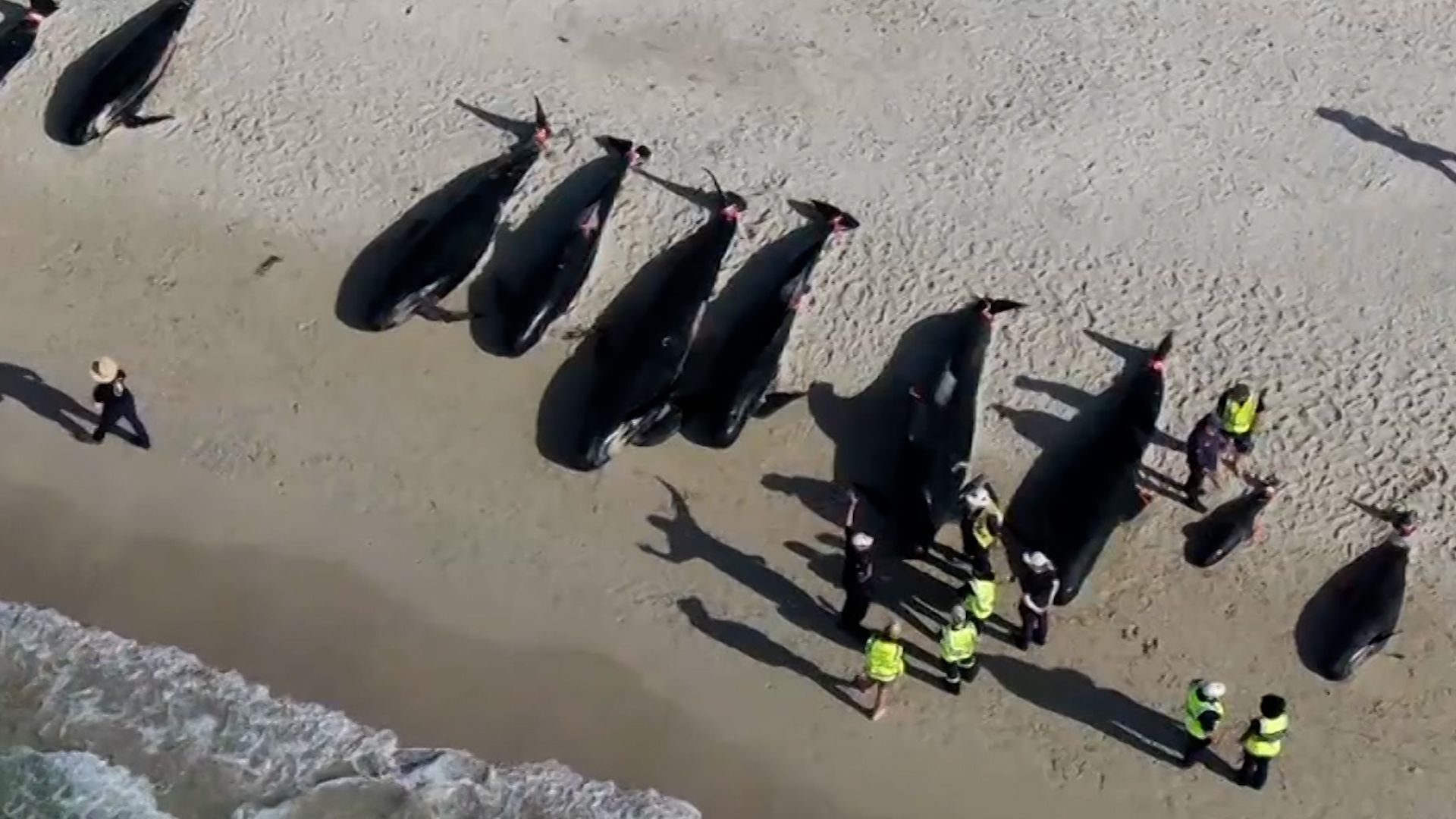In a touching demonstration of teamwork and resolve, more than 130 pilot whales were successfully guided back to the ocean after a tragic mass stranding incident in Western Australia. This event took place on April 25, 2024, near Dunsborough, and involved the dedicated efforts of wildlife officials, marine researchers, veterinarians, and countless volunteers who united to save these stranded marine creatures.
At first, over 150 whales were discovered stuck on the beach, highlighting the urgency of the situation. Despite valiant efforts, 28 whales perished. However, the majority were successfully guided back to the sea, highlighting the significance of prompt and well-coordinated rescue operations.
The beach scene was characterised as disorderly and overpowering, as the whales were densely clustered together, highlighting the urgent necessity for prompt intervention. The dedicated volunteers, comprising wildlife authorities and seasoned veterinarians, exerted ceaseless efforts to maintain the whales’ upright position and ensure unobstructed blowholes (openings through which they breathe air), which are vital for survival.
The remarkable social unity displayed by pilot whales, with the group’s surviving members actively assisting and aiding their distressed companions, is truly awe-inspiring. However, the imminent danger of the whales getting stranded once more led to ongoing efforts of monitoring by spotter planes and boats, to prevent any more tragedies.
The reasons behind these large-scale strandings are still unknown, but specialists hypothesize about different factors such as navigation mistakes, diseases, or disruptions in their environment. Even though we have made progress in comprehending marine behaviour, the enigmas surrounding these incidents endure, emphasizing the importance of ongoing research and conservation endeavours.
Preserving marine ecosystems and safeguarding species like pilot whales is extremely important. This rescue mission demonstrates the vital role that every individual, regardless of their expertise or background, plays in reducing the impact of these emergencies.
It is important to consider ways to avoid future occurrences of large-scale strandings and enhance procedures for dealing with such events after they happen. Taking proactive steps for conservation requires educating the public, running awareness campaigns, and constantly monitoring vulnerable coastal areas.
The unwavering dedication shown during this rescue mission to protect wildlife showcases the unstoppable human spirit and brings hope for our planet’s fragile ecosystems. Let’s draw inspiration from these efforts as we continue to work towards a harmonious balance between humans and the environment.



















wpo9fw
06rfvk
pCcQbUkoVYlTH
eQBfGsHO